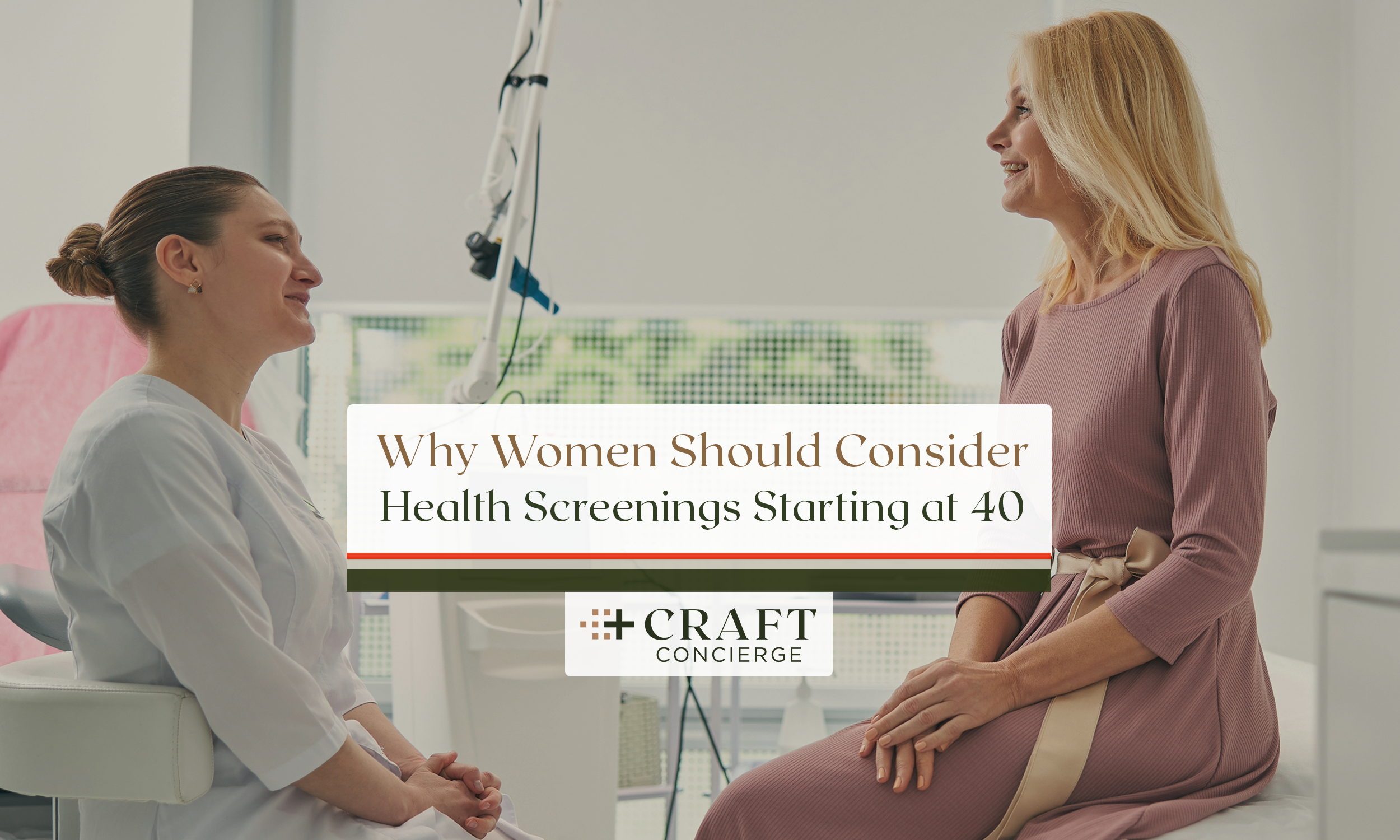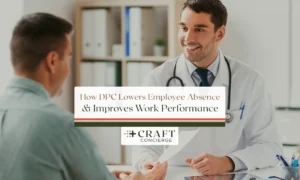If you’re a woman approaching your 40th birthday, you’ve probably heard conflicting advice about when to start regular health screenings. Some guidelines suggest waiting until 50 for certain tests, while others recommend beginning earlier. The truth is, your 40s represent a crucial decade for establishing preventive care habits that can dramatically impact your long-term health outcomes.
The traditional approach to women’s healthcare has often focused on reactive treatment rather than proactive prevention. But emerging research and clinical experience show us that many serious health conditions begin developing in a woman’s 40s, even when symptoms haven’t appeared yet. Starting comprehensive health screenings at 40 gives you the power to catch potential issues early, when they’re most treatable and manageable.
This isn’t about creating anxiety around aging – it’s about empowering you with knowledge and tools to take control of your health journey. When you understand what screenings are available and why they matter, you can make informed decisions that align with your personal health goals and family history.
What Health Screenings Should Women Over 40 Consider?
The landscape of preventive health screenings for women has evolved significantly in recent years. While traditional guidelines focused on mammograms and Pap smears, we now understand that comprehensive health screening should address multiple areas of concern.
Essential Screening Categories Include:
- Cardiovascular health assessments including blood pressure monitoring, lipid panels, and heart disease risk evaluation
- Cancer screening for breast, cervical, colorectal, and skin cancers
- Metabolic health testing covering diabetes risk, thyroid function, and hormonal changes
- Bone density screening to assess osteoporosis risk
- Mental health evaluations addressing depression, anxiety, and stress management
Each of these areas becomes increasingly important as women enter their 40s. Hormonal changes, lifestyle factors, and genetic predispositions can all influence your risk profile during this decade. Rather than waiting for symptoms to appear, proactive screening helps identify concerns when intervention can be most effective.
The key is working with healthcare providers who understand that every woman’s risk profile is unique. Your family history, lifestyle factors, previous health issues, and personal concerns should all influence which screenings you prioritize and how frequently you receive them.
When Should Women Start Getting Mammograms?

The question of when to begin mammography screening remains one of the most debated topics in women’s healthcare. Different medical organizations offer varying recommendations, which can leave women feeling confused about the best approach for their situation.
Current Guideline Variations:
- Some organizations recommend annual mammograms starting at 40
- Others suggest beginning at 45 with annual screening
- Still others recommend starting at 50 with screening every two years
The reality is that breast cancer risk increases with age, but it doesn’t suddenly appear at 50. Approximately 25% of breast cancers occur in women under 50, with many of these cases happening in the 40-49 age group. For women with family history of breast or ovarian cancer, genetic mutations, or other risk factors, earlier screening becomes even more important.
Rather than following a one-size-fits-all approach, consider having detailed discussions with your healthcare provider about your individual risk factors. These conversations should include:
- Your family history of breast, ovarian, and related cancers
- Any genetic testing results or recommendations for genetic counseling
- Your personal health history and any previous breast concerns
- Your comfort level with different screening approaches
- The availability of advanced screening technologies in your area
Remember that mammography technology has improved significantly in recent years. Digital mammography and 3D mammography (tomosynthesis) can detect smaller lesions and provide clearer images, especially in women with dense breast tissue.
Preventive Care for Women: Beyond Traditional Screenings
While cancer screening often gets the most attention, comprehensive preventive care for women over 40 should address multiple aspects of health that can impact your quality of life and longevity.
Cardiovascular Health Becomes Critical Heart disease remains the leading cause of death among women, yet it’s often underdiagnosed and undertreated. Your 40s are the perfect time to establish baseline measurements for:
- Blood pressure monitoring and management
- Cholesterol and lipid profile assessment
- Blood sugar and diabetes screening
- Assessment of inflammatory markers
- Evaluation of family history and lifestyle risk factors
Many women are surprised to learn that heart disease risk increases significantly after menopause, but the groundwork for cardiovascular problems often begins years earlier. Starting comprehensive cardiovascular screening at 40 allows you to identify and address risk factors before they become serious health issues.
Metabolic Health Deserves Attention Your metabolism changes throughout your 40s, influenced by hormonal shifts, lifestyle factors, and genetic predispositions. Key areas to monitor include:
- Thyroid function, which can affect energy, weight, mood, and overall well-being
- Blood sugar levels and insulin sensitivity
- Vitamin D levels and other nutritional markers
- Hormonal changes related to perimenopause
These metabolic changes can significantly impact how you feel day-to-day, but they’re often dismissed as normal parts of aging. Comprehensive screening can help distinguish between normal age-related changes and treatable health conditions.
Early Detection Benefits: Why Timing Matters

The concept of early detection isn’t just about finding problems sooner – it’s about finding them when you have the most treatment options and the best chance for positive outcomes. This principle applies across multiple areas of women’s health.
Treatment Options Expand with Early Detection When health conditions are caught in their earliest stages, you typically have access to:
- Less invasive treatment options
- Better long-term outcomes
- Lower treatment costs
- Reduced impact on your daily life and family responsibilities
For example, early-stage breast cancer detected through screening has a five-year survival rate above 95%. When caught early, treatment options may include less extensive surgery, shorter courses of treatment, and better preservation of quality of life.
Peace of Mind Has Real Health Benefits Knowing where you stand with your health reduces anxiety and allows you to make informed decisions about your lifestyle, career, and family planning. When you have regular, comprehensive health screenings, you can:
- Address concerns before they become emergencies
- Make lifestyle changes based on actual risk factors rather than general recommendations
- Plan for the future with confidence about your health status
- Focus on living your life rather than worrying about unknown health issues
This psychological benefit of preventive care shouldn’t be underestimated. Chronic worry about health can impact sleep, relationships, work performance, and overall quality of life.
Health Screening Guidelines: Navigating Conflicting Recommendations
One of the most frustrating aspects of women’s healthcare is the abundance of conflicting screening recommendations. Different medical organizations, insurance companies, and healthcare providers may suggest different approaches to preventive care.
Why Guidelines Differ These variations exist for several reasons:
- Different organizations weigh the benefits and risks of screening differently
- New research constantly updates our understanding of screening effectiveness
- Cost considerations influence some recommendations
- Population-based guidelines may not account for individual risk factors
Rather than getting overwhelmed by conflicting information, focus on having comprehensive discussions with healthcare providers who can help you navigate these recommendations based on your specific situation.
Questions to Ask Your Healthcare Provider:
- What are my individual risk factors for different health conditions?
- How do my family history and personal health history influence screening recommendations?
- What are the benefits and limitations of different screening tests?
- How frequently should I have different types of screenings?
- What lifestyle changes could reduce my need for certain screenings or improve their effectiveness?
Creating Your Personalized Screening Plan

Developing an effective health screening plan requires balancing evidence-based guidelines with your personal risk factors, preferences, and life circumstances. This personalized approach ensures you receive appropriate care without unnecessary anxiety or over-screening.
Start with Risk Assessment Work with your healthcare provider to evaluate your personal risk factors across different areas:
- Family history of cancer, heart disease, diabetes, and other conditions
- Personal health history including previous diagnoses, surgeries, or treatments
- Lifestyle factors including diet, exercise, stress levels, and sleep quality
- Occupational or environmental exposures that might increase health risks
Consider Your Life Stage and Goals Your 40s might include significant life changes that influence your healthcare priorities:
- Career advancement or changes that affect stress levels and schedule flexibility
- Family responsibilities including caring for aging parents or supporting teenagers
- Financial considerations that influence healthcare spending priorities
- Personal relationships and support systems that impact your overall well-being
Build Flexibility into Your Plan Your screening needs will likely change throughout your 40s and beyond. A good screening plan includes regular reassessment and adjustment based on:
- Changes in your personal or family health history
- New screening technologies or updated guidelines
- Changes in your insurance coverage or healthcare access
- Your evolving health priorities and concerns
The Role of Direct Primary Care in Women’s Health Screening
Traditional healthcare models often make comprehensive preventive care challenging due to time constraints, insurance limitations, and fragmented care delivery. Direct primary care models, like those offered through Craft Concierge, provide an alternative approach that can be particularly beneficial for women seeking comprehensive health screenings.
Benefits of Direct Primary Care for Screening:
- Longer appointment times allow for thorough discussions about screening options and personal risk factors
- Direct relationships with healthcare providers who understand your complete health picture
- Flexibility in screening schedules and approaches based on your individual needs rather than insurance restrictions
- Coordination of care across different specialists and screening services
- Ongoing support and guidance as you navigate screening results and follow-up care
This model allows for the kind of personalized, relationship-based care that makes comprehensive health screening most effective. Instead of rushing through standardized screening protocols, you can work with healthcare providers who have time to understand your concerns, explain your options, and support your decision-making process.
Taking Action: Your Next Steps

Understanding the importance of health screening at 40 is just the first step. Taking action to establish comprehensive preventive care requires planning and commitment, but the investment in your long-term health is invaluable.
Immediate Steps to Take:
- Schedule a comprehensive health assessment with a healthcare provider who specializes in women’s health
- Gather information about your family health history to share with your provider
- Review your current insurance coverage for preventive care benefits
- Consider your personal health goals and screening priorities
- Research healthcare providers or services that offer the comprehensive approach you’re seeking
The challenge many women face is finding healthcare providers who have the time and flexibility to create truly personalized screening plans. Traditional healthcare models often limit appointment times and focus on addressing immediate concerns rather than comprehensive prevention strategies.
If you’re looking for a healthcare approach that prioritizes your individual needs and provides the time necessary for thorough preventive care discussions, consider exploring Craft Concierge and our comprehensive direct primary care model. Our membership options are designed to give you the personalized attention and flexibility needed to develop an effective screening strategy that fits your life and health goals.
Remember that starting health screenings at 40 isn’t about assuming something is wrong with your health. It’s about taking a proactive approach to maintaining and optimizing your well-being throughout your 40s and beyond. When you have comprehensive information about your health status, you can make informed decisions about lifestyle changes, treatment options, and long-term planning.
Your 40s can be a decade of empowerment, confidence, and optimal health when you have the right information and support. By establishing comprehensive health screening habits now, you’re investing in decades of vitality and peace of mind ahead.





